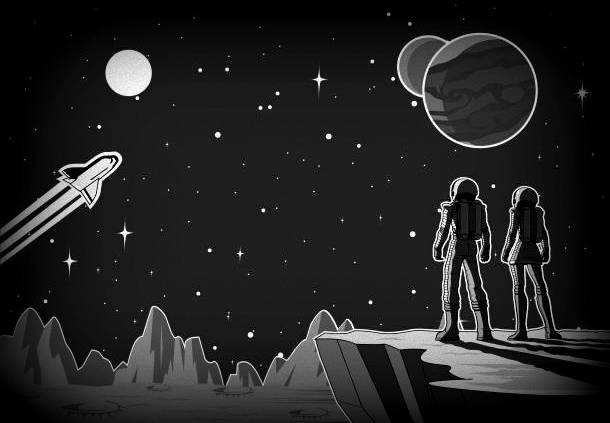Space Tourism

- 15 Apr 2024
Why is it in the News?
Entrepreneur and pilot on the NS-25 mission of Blue Origin — a company founded by Jeff Bezos, who is also Gopi Thotakura is set to become the first Indian to venture into space as a tourist the founder of Amazon.
Context:
- In recent years, space tourism has grown by leaps and bounds.
- The space tourism market was valued at $848.28 million.
- It is expected to grow to $27,861.99 million by 2032.
- However, there are several challenges, such as high cost, and environmental concerns, that may limit the industry’s growth.
- The NS-25 mission, which Gopi Thotakura is a part of, is a sub-orbital mission. Thotakura and his other crew members will be taken to outer space via New Shepard, a fully reusable sub-orbital launch vehicle developed specifically for space tourism by Blue Origin.
What is Space Tourism?
- Space tourism is essentially a section of the aviation sector that seeks to provide tourists with the opportunity to become astronauts and experience space travel for recreational, leisure, or business purposes.
- There are two main types of space tourism, sub-orbital and orbital.
- The sub-orbital spacecraft takes passengers just beyond the Kármán line (it lies nearly 100 kilometers above our heads and is considered to be the boundary between Earth’s atmosphere and outer space).
- The passengers get to spend a few minutes in outer space and then come back to Earth.
- The orbital spacecraft, on the other hand, takes passengers much further than the Kármán line.
- Usually, passengers can spend from a couple of days to more than a week at an altitude of nearly 1.3 million feet.
- In September 2021, Space X’s Falcon 9 took four passengers to an altitude of 160 km where they spent three days orbiting the Earth.
What are the Challenges?
- Currently, space tourism is expensive as a passenger generally has to pay at least a million dollars to reach outer space.
- This amount is out of reach for almost everyone.
- Moreover, several studies have pointed out that space tourism may lead to environmental damage as rockets emit gaseous and solid chemicals directly into the upper atmosphere.
- A 2022 study done by researchers found that the soot emissions from rocket launches are far more effective at warming the atmosphere compared to other sources.
- Safety is also a concern when it comes to space tourism.
- Despite high safety standards, a total of 676 people have flown into space and 19 of them have died, as of November 2023, according to a report by Astronomy Magazine.
- This means that approximately 3% of astronauts died during their space flight which is quite a high fatality rate.
